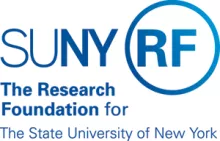Reasonable and accurately recorded personal car mileage used for local travel and out-of-town travel is reimbursable at the allowable mileage rate established by the IRS. The current mileage rate is 67 cents per mile. Mileage reimbursement covers, but is not limited to, gas, oil, depreciation, insurance costs of operating a vehicle, and repairs for any damages to the automobile.
Personal car mileage is calculated from the traveler’s official place of work and must be greater than the mileage from the traveler’s residence to the place of work. Mileage from the traveler's home to an official place of work is not reimbursable.
When claiming mileage for multiple trips, a Statement of Automobile Travel should be submitted.
Reasonable toll costs and necessary parking fees are reimbursable for both local and out-of-town travel. Mileage and related expenditures such as parking and tolls can be claimed by filling out a Travel Payment Request Form. Receipts are not required for individual expenditures less than $75.
Rental vehicles may be used when it is in the best interests of the project or the RF. For example, renting a vehicle would be considered appropriate under the following circumstances:
- renting is the least costly alternative.
- renting is the only method of transportation available.
- renting will eliminate substantial delays.
A written justification for the rental vehicle must be provided with the Travel Authorization Form unless using Enterprise Rent-A-Car within New York State.
The Research Foundation (RF) has established a master service agreement with Enterprise Rent-A-Car, based upon the New York State Contract #72001, PS61890 for passenger vehicle rentals within New York State and the United States. This master agreement ensures appropriate rental vehicle insurance coverage with rental costs at the state contract rates.
If a personal credit card is used to rent the vehicle, the rental documents should clearly show that the vehicle is rented on behalf of the RF (not on behalf of the traveler). This will eliminate confusion regarding liability for coverage in the event of an insurance claim.
The preferred method of payment is an RF-issued Purchase Order which is obtained through the Research, Grants and Contracts office based upon submission of a purchase requisition. Gasoline purchases, as well as any other direct costs associated with the vehicle, will be reimbursed.
Costs incurred for the use of taxicabs are reimbursable with receipts. Without receipts, the total maximum reimbursement is $75 per trip. Tips are included in the maximum. In addition, the cost of necessary bus or subway trips is reimbursable. Original receipts for expenditures over $75 must be attached to the Travel Payment Request Form.
Travel by train or bus should be by coach if the one-way distance is 200 miles or less. Rail travel more than 200 miles one way may be first class. For the first class, chair accommodations must be used during the day and roomette accommodations may be used for overnight travel. Roomettes are economy accommodations that include a bunk and a sink.
Ticket stubs for each expenditure over $75 must be attached to the Travel Payment Request Form. Original receipts for additional costs, such as tolls, parking or mileage, must be attached to the form for each expenditure over $75.
Travelers are expected to use the lowest-priced available, appropriate, coach-class airfare. In compliance with the Fly America Act, all travel on federally funded projects must be on a US flag air carrier.
The cost of airplane tickets, tolls, parking, and mileage related to airplane travel is reimbursable.
Air travel arrangements can be made via a travel agent or on-line/phone. Use of state travel agency is not necessary, however, if you use a state travel agency, you may not charge the airfare to a personal credit card.
When making reservations for air travel without using a travel agency, it is optimal to work with the Research, Grants and Contracts office to make reservations using the Research, Grants and Contracts Business Travel Account (BTA) so that expenses are charged to the BTA rather than to a personal credit card. Airfare charged to a personal credit card can be reimbursed upon submission of a Travel Authorization Form and proof of the reservation (such as a copy of the on-line receipt).
Note: Nonrefundable Airline Tickets should not be charged to a sponsored program account if a trip is canceled. (Costs can only be charged to a project if there is a direct benefit to the project. If the trip is canceled, there is no benefit to the project.) If in the future, the ticket will be used for the purpose of benefiting the project, then the cost of the ticket plus the transfer fee can be charged to the sponsored project.
